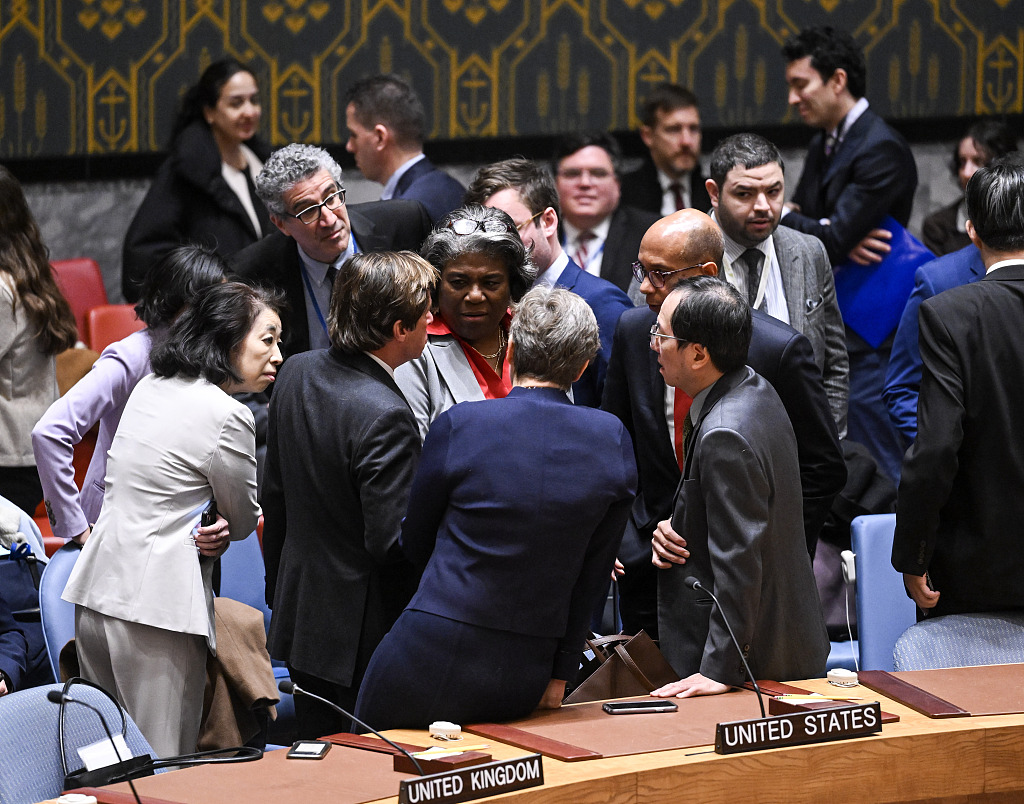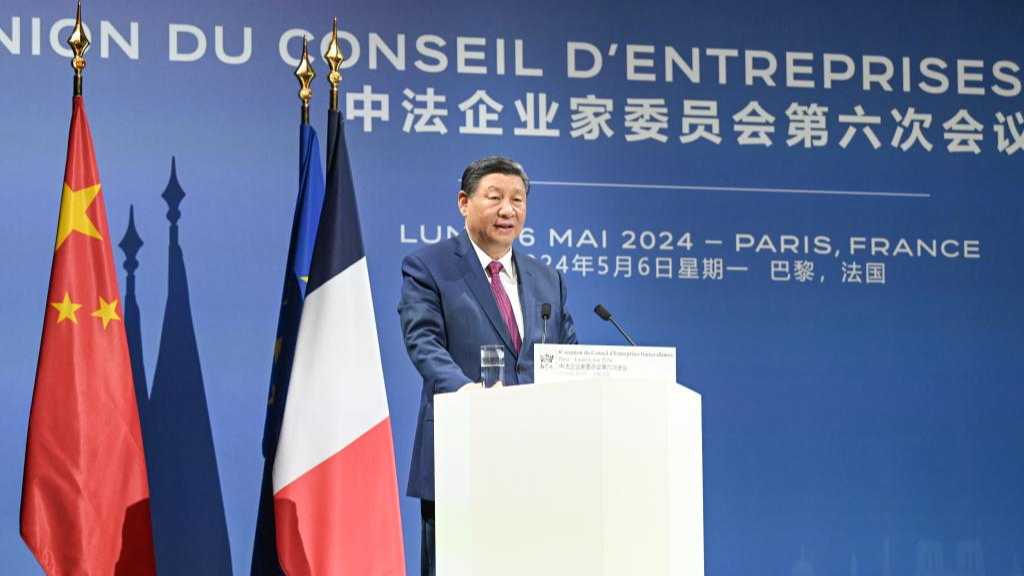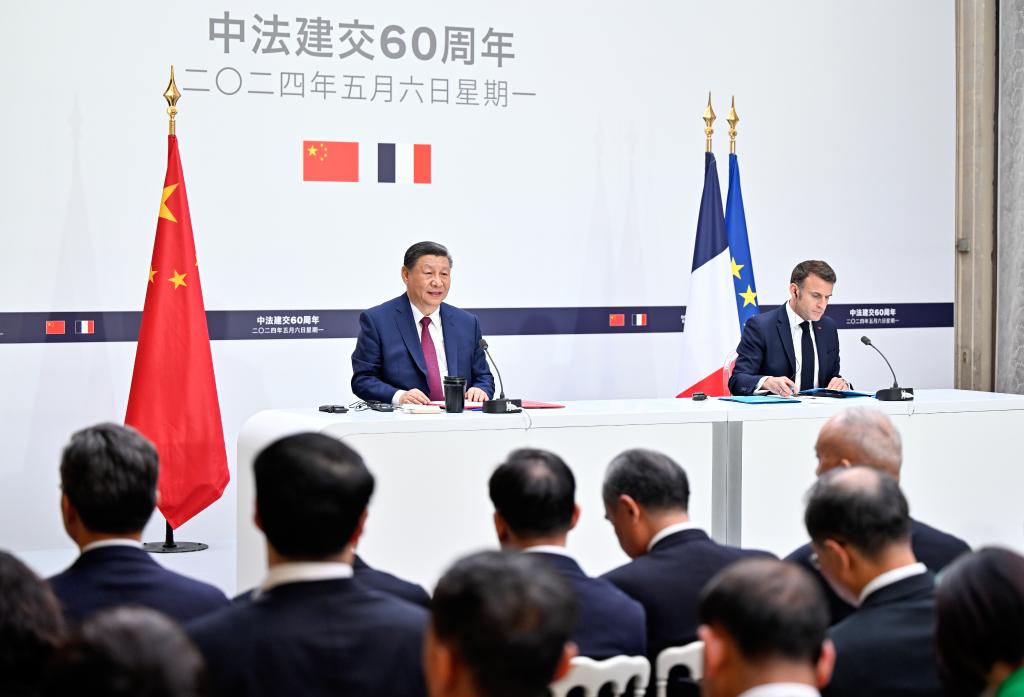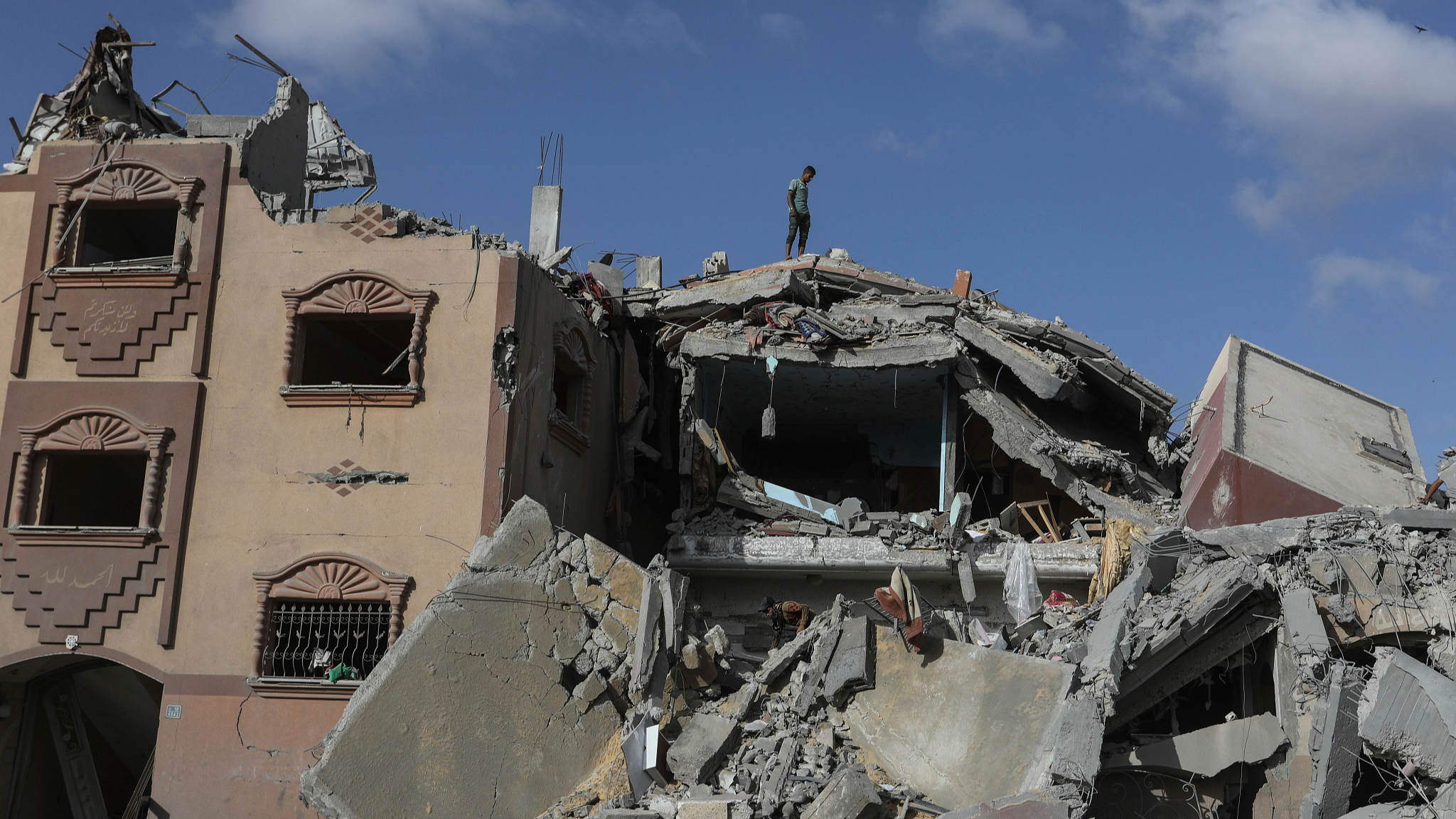The Security Council on Monday adopted a resolution that demands an immediate cease-fire in Gaza for the holy month of Ramadan.
The resolution, winning 14 votes in favor among the 15 members of the council, was the first Security Council resolution that demands or calls for a ceasefire in Gaza after the flare-up of the Israeli-Palestinian conflict in Gaza on October 7, 2023.
The United States, which had previously vetoed three draft resolutions that would have called for or demanded a ceasefire in Gaza, abstained on Monday, allowing the draft to pass.
Hamas welcomed the adoption of the resolution. In a statement, it called on the Security Council to pressure Israel to commit to a ceasefire and to stop “the war of extermination” against the Palestinian people.
It also highlighted its readiness to engage in a prisoner exchange process immediately, emphasized the need to reach a permanent ceasefire and demanded the withdrawal of all Israeli forces from the Gaza Strip,
After the United States’ abstention, Israeli Prime Minister Benjamin Netanyahu announced the cancellation of a planned visit to Washington by a delegation comprising senior Israeli officials.
Netanyahu accused the U.S. of “retreating” from a “principled position” by allowing the vote to pass without conditioning the ceasefire on the release of hostages held by Hamas.
China calls for implementation of the resolution
A Chinese envoy on Monday called for the implementation of the just-adopted Security Council resolution that demands an immediate ceasefire in Gaza for Ramadan.
“Nearly six months after the outbreak of the conflict, over 32,000 Palestinian civilians have lost their lives. For those, Monday’s resolution comes too late. But for the millions of people in Gaza who remain mired in an unprecedented humanitarian catastrophe, this resolution, if fully and effectively implemented, could still bring long-awaited hope,” said Zhang Jun, China’s permanent representative to the United Nations.
“Security Council resolutions are binding. We call on the parties concerned to fulfill their obligations under the UN Charter and to take due action as required by the resolution,” he said. “We expect the states with significant influence to play a positive role on the parties concerned, including by using all necessary and effective means at their disposal to support the implementation of the resolution.”
A ceasefire for Ramadan is only the first step, it must serve as a basis for a permanent and sustainable cessation of hostilities, said the Chinese ambassador in an explanation of vote.
Differences between two drafts
“We did not agree with everything with the resolution,” the U.S. permanent representative to the United Nations, Linda Thomas-Greenfield, said.
In her explanation of vote, Thomas-Greenfield said the resolution was “nonbinding.” She also said, “It was important for the Council to speak out and make clear that any ceasefire must come with the release of all hostages.”
China, together with Algeria and Russia, voted against a draft resolution tabled by the United States on Friday. “A comparison of the two drafts shows the differences,” said Zhang Jun in an explanation of vote.
Monday’s draft is unequivocal and correct in its direction, demanding an immediate ceasefire, while the U.S. draft was evasive and ambiguous. Monday’s draft demands an unconditional ceasefire, while the U.S. draft set preconditions for a ceasefire. Monday’s draft reflects the general expectations of the international community and enjoys the collective support of the Arab states, while the U.S. draft was rejected by the Arab states, Zhang said.
“The differences between the two drafts boil down to nothing but whether there should be an immediate and unconditional ceasefire and whether the collective punishment of the people in Gaza should be allowed to continue,” Zhang said. “On this issue, China, like most members of the international community, has been very clear from the very outset. Whether we voted against last Friday, or in favor of today, our vote has been based on our consistent position and proposition.”
Before the vote on the draft resolution tabled by the 10 elected members of the Security Council, Russia proposed an oral amendment but failed to obtain enough support in the council.
The Russian proposal would have restored the word “permanent” contained in the original draft to demand a Ramadan ceasefire that would lead to a permanent and sustainable ceasefire.
The United States voted against the Russian amendment. Eleven members abstained. Three voted in favor.
Countries react resolution on ceasefire
In a joint statement, the 10 elected members of the Security Council expressed the hope that Resolution 2728 will be implemented in good faith, by all parties, and will help ease the suffering of the population in Gaza.
Immediately after the adoption of the resolution, UN Secretary-General Antonio Guterres called for its implementation.
“The Security Council just approved a long-awaited resolution on Gaza, demanding an immediate ceasefire, and the immediate and unconditional release of all hostages. This resolution must be implemented. Failure would be unforgivable,” Guterres said in a post on X, formerly known as Twitter.
In a statement, the Iraqi Foreign Ministry welcomed the UN decision and called on all parties to comply with their obligations under international law and to expand humanitarian aid to civilians in the entire Gaza Strip.
Lebanese Prime Minister Najib Mikati also welcomed the adoption of the resolution, saying the decision “constitutes the first step towards halting Israeli aggression against the Gaza Strip.”
Source(s): CGTN

 News5 days ago
News5 days ago
 News5 days ago
News5 days ago
 Tech5 days ago
Tech5 days ago
 News6 days ago
News6 days ago
 News6 days ago
News6 days ago
 News6 days ago
News6 days ago
 World6 days ago
World6 days ago
 News6 days ago
News6 days ago


















